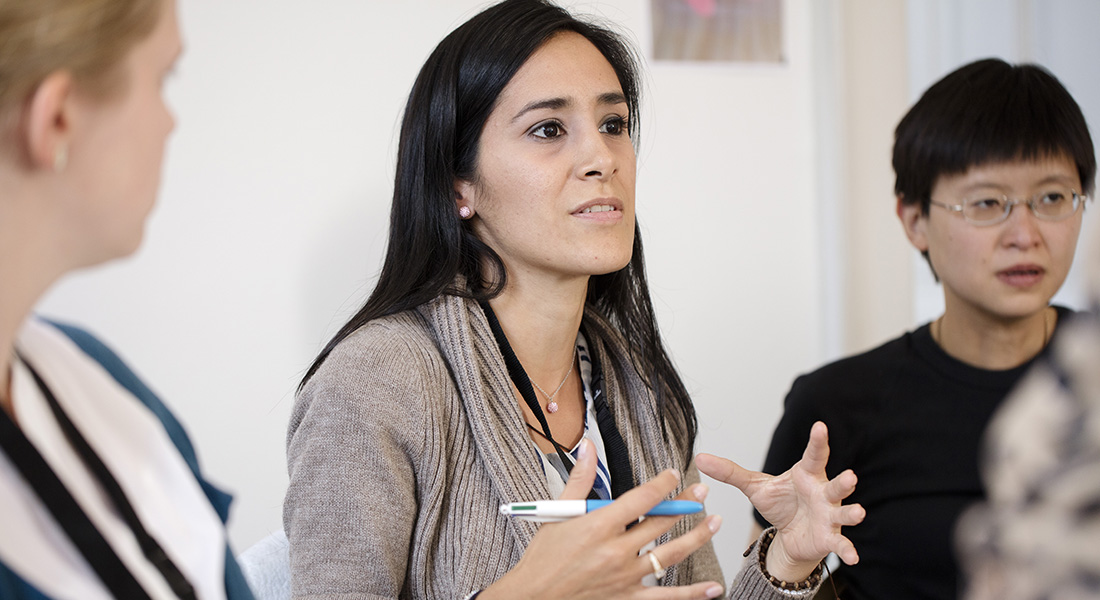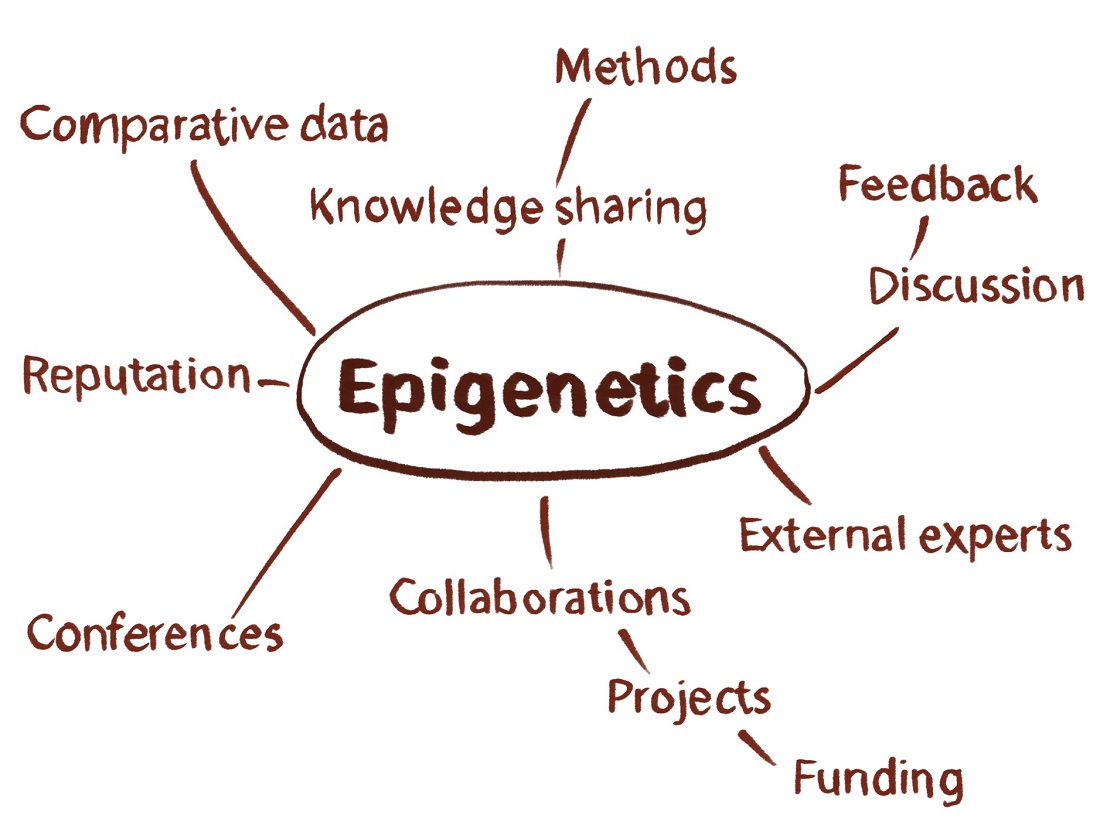Collaboration & networks

Our aim is to contribute to define the European and international agenda in healthy aging research, forcefully communicating our optimism as well as our most significant research results to the international research community.
Below, you can read more about the specific international and national collaboration projects and networks, Center for Healthy Aging is part of.
National cooperation and networks
Prognostication of Acute Recovery Capacity
Evidence-based research in geriatrics
Science, data and ethics
Improving the quality of life in senior lives
Genetics, biochemistry and molecular biology
EpiCPH is a network at the University of Copenhagen for researchers interested in epigenetics. We are part of CEHA’s Network for Researchers in Aging and our mission is to share knowledge, discuss the latest developments in epigenetics and stimulate collaborations. Thereby, we support research in epigenetics at UCPH. The network has monthly meetings with one or two presentations with plenty of time afterwards for questions and discussion.
International cooperation and networks
EIT Health is a private-public collaboration with the goal to promote entrepreneurship and develop innovations in healthy living and active aging, providing the EU with new opportunities and resources. This will be achieved by delivering products, services and concepts designed to improve quality of life and contribute to the sustainability of healthcare across the EU.
Partners in EIT Health
More than 50 core partners and their 90 associate organisations, including leading businesses, public partners, research centers and universities from nine EU countries take part in this consortium.
A selected list of core-partners:
- University of Copenhagen
- University of Oxford
- Karolinska Institutet
- Novo Nordisk
- Abbott Laboratories, Spain
- National Institute of Health and Medical Research, Inserm, France
- Philips Healthcare
- Roche
- Diagnostics GmbH
A full list of partners can be found at the official website for EIT Health.
At the University of Copenhagen, Center for Healthy Aging is a central player in EIT Health. Currently, Dean Ulla Wewer is interim director of the education part of the project.
The International Alliance of Research Universities (IARU), is a prestigious alliance that includes the University of Copenhagen. IARU is a valuable networking opportunity for Center for Healthy Aging, who arranges meetings and workshops and utilizes IARU as a mechanism for enhancing collaboration and future research activities, mainly through the IARU Aging, Longevity and Health initiative. The close association between Center for Healthy Aging and IARU is a cornerstone in the efforts to internationalize the center.
IARU members
- Australian National University
- ETH Zurich
- National University of Singapore
- Peking University
- University of California, Berkeley
- University of Cambridge
- University of Cape Town
- University of Copenhagen
- University of Oxford
- University of Tokyo
- Yale University
An important milestone for Center for Healthy Aging is to engage promising, young researchers from across the world through exchange programmes for PhD students, postdocs, and junior research staff, as well as through hosting international workshops and summer schools.
Aging, Longevity and Health Initative
In 2014, Center for Healthy Aging empowered the IARU network further by forming the IARU Aging, Longevity and Health Steering Committee, whose raison d’être is to increase engagement across IARU campuses and to promote joint activities and funding opportunities for IARU Aging, Longevity and Health participants.
The Aging, Longevity and Health Steering Committee includes:
- Professor Lene Juel Rasmussen, University of Copenhagen
- Professor Kaarin Anstey, Australian National University
- Professor Ho Teck Hua, National University of Singapore
- Professor Xiaoying Zheng, Peking University
- Professor William Satariano, University of California, Berkeley
- Dr Louise Lafortune, University of Cambridge
- Professor Sarah Harper, University of Oxford
- Professor Junichiro Okata, The University of Tokyo (Chair)
The International Healthy Aging Network (iHAN) is part of IARU. The researchers in iHAN collaborate to study molecular and cognitive biomarkers of healthy aging and age-related diseases, including type 2 diabetes and Alzheimer’s disease.
iHAN members include researchers from
- University of Copenhagen
- University of Melbourne
- Australia National University
- Queensland University
- Yale
- Johns Hopkins University
- University of California, Berkeley
- McGill
- University of Oslo
- Aarhus University
The Initial Training Network (ITN) MARRIAGE is a EU funded network of eight European Aging Research Institutes including Center for Healthy Aging and four companies, coordinated by the European Research Institute for the Biology on Ageing in Groningen (ERIBA). The Training Network will create a pan-European Network focused on aging research.
Since 2012, Center for Healthy Aging has been member of MARRIAGE. The overall objective is to provide state-of-the-art training in study of the biology of aging.
Center for Healthy Aging participates in the organisation of the ABRAHAM network, which includes researchers, companies, governmental institutions and patients/citizen. By creating a transatlantic network with partners from the EU, the USA and Canada, ABRAHAM aims to enhance integration in the field of biobanking and basic aging research in order to contribute to the goal set by the European Commission, namely adding two extra healthy years to life in 2020.
This network will build on several existing projects, some of which involve transatlantic partnerships that focus on aging-related issues, such as genome stability and metabolism and systems biology.
Founding partners of ABRAHAM
- University Medical Center Groningen, The Netherlands
- University of Copenhagen
- University of Newcastle upon Tyne, United Kingdom
- Mayo Clinic, Minnesota, USA
- McGill University, Montreal, Canada
All partners have extensive collaborations with industries in the food, pharmaceutical and medical technology sectors.
Center for Healthy Aging collaborates with the Institute of Development, Aging and Cancer IDAC, Tohoku University, Japan. The objective is to promote and improve academic exchange between the two institutions.
The cooperation focuses on training and research in
- Molecular mechanisms of aging
- Genome instability and aging
- Multidisciplinary aging-related human science and technology
Center of Healthy Aging is part of a European network, MouseAge, which is being developed for preclinical testing of interventions in mouse models of age and age-related diseases.
Improving the quality of aging research
A key requisite to develop new interventions for age-related conditions and promote healthier aging is the availability and use of preclinical murine models. There is currently a clear lack of such models and appropriate standardized methodologies to test interventions.
Therefore, to improve the quality of European aging research a coordinated interdisciplinary action is needed to standardize methodologies and animal welfare, and to define endpoints, as well as centralizing information, models and technologies for the assessment of interventions.
This action proposes to set-up a highly interactive and flexible European network, which will create a critical mass of cross-disciplinary scientists, clinicians and industrial partners to reach consensus on ways to test preclinical interventions in aging mice. It will consolidate current best practice across leading European institutions and researchers, maximize resource efficiency, and provide a platform to help train the next generation of scientists.

